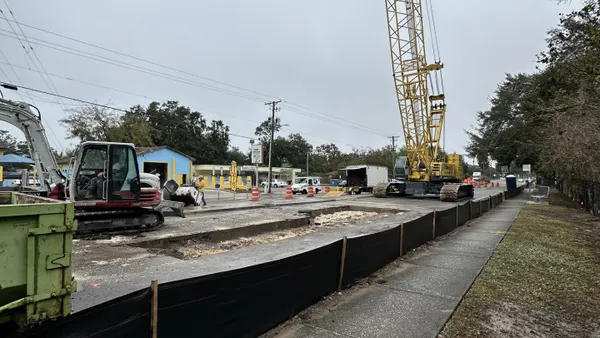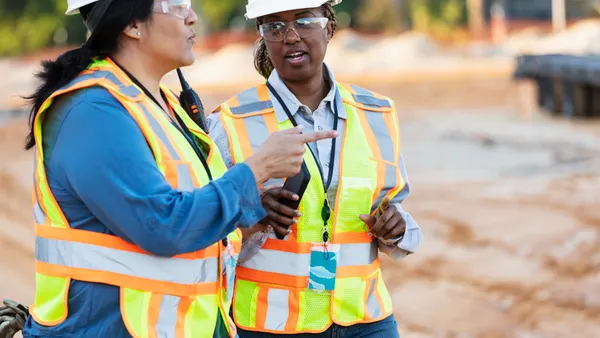Dive Brief:
- The Illinois Economic Policy Institute has determined that the state must put $4.6 billion toward transportation infrastructure each year to keep those public assets in a good state of repair, Roads & Bridges reported. The report's author, Mary Craighead, an institute transportation policy analyst, said it is critical that Illinois lawmakers fund the backlog of repairs needed for roads, bridges and other transit systems before the scope of work increases – for roads, 101%, and for bridges, 64% – by 2023. The backlog of Illinois roadway miles that need repair has increased by 85% since 2000, and more than 30% of Illinois bridges are more than 50 years old and past their design life.
- Meanwhile, the Chicago area's Regional Transportation Authority is looking at a laundry list of fixes for more than 30% of its assets. The state of disrepair is costing Chicago commuters $630 per year in annual vehicle maintenance costs, and motorists are spending an additional nine hours each year in traffic congestion.
- To fund the necessary work statewide, the report said Illinois' gasoline taxes would have to increase by nearly 350% and special fuel taxes by 365%. A 470% hike in vehicle registration fees would also raise the necessary revenue, as would a four- to five-cent per-mile user fee.
Dive Insight:
Federal funding help is limited and will increasingly become so as President Donald Trump seeks to place the majority of infrastructure funding responsibility on the shoulders of state and local governments for work without a national economic or security component.
But many states have already put plans into place, relying on fuel-tax hikes, higher user fees and public-private partnerships for major capital projects. About a year ago, California lawmakers approved raising gas taxes, the cost of vehicle registrations and other fees to fund a $52 billion state infrastructure repair program. Even such a massive program won't meet the state's needs, however, as the American Society of Civil Engineers at the time estimated that California had a $130 billion backlog of repairs.
As a way of possibly adding more revenue to the state's infrastructure budget, the California Department of Transportation is exploring a per-mile user tax. This kind of fee is seen as a way to make sure that electric and hybrid vehicle owners also pay toward road and bridge upkeep as their consumption of gas decreases.
Colorado is underway with a per-mile pilot program. Some participants have found they would pay less under a per-mile scheme than they would through gas taxes, but there is a concern how the charge would affect low-income and rural drivers and how out-of-state drivers would be made to pay.









